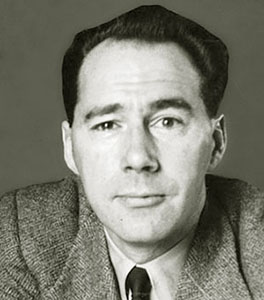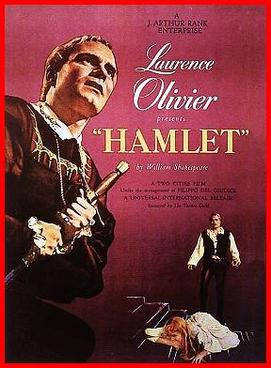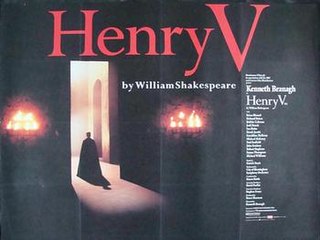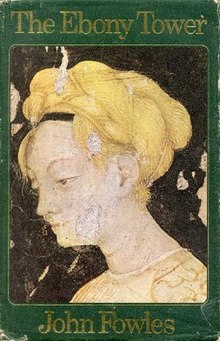
Brian Wilson Aldiss was an English writer, artist and anthology editor, best known for science fiction novels and short stories. His byline reads either Brian W. Aldiss or simply Brian Aldiss, except for occasional pseudonyms during the mid-1960s.

Clive Barker is an English writer, filmmaker and visual artist. He came to prominence in the mid-1980s with a series of short stories, the Books of Blood, which established him as a leading horror writer. He has since written many novels and other works. His fiction has been adapted into films, notably the Hellraiser series, the first installment of which he also wrote and directed, and the Candyman series.

John Wyndham Parkes Lucas Beynon Harris was an English science fiction writer best known for his works published under the pen name John Wyndham, although he also used other combinations of his names, such as John Beynon and Lucas Parkes. Some of his works were set in post-apocalyptic landscapes. His best known works include The Day of the Triffids (1951), filmed in 1962, and The Midwich Cuckoos (1957), which was filmed in 1960 as Village of the Damned, in 1995 under the same title, and again in 2022 in Sky Max under its original title.

Hamlet is a 1948 British film adaptation of William Shakespeare's play of the same name, adapted and directed by and starring Laurence Olivier. Hamlet was Olivier's second film as director and the second of the three Shakespeare films that he directed. Hamlet was the first British film to win the Academy Award for Best Picture. It is the first sound film of the play in English.
Becket or The Honour of God, often shortened to Becket, is a 1959 stage play written in French by Jean Anouilh. It is a depiction of the conflict between Thomas Becket and King Henry II of England leading to Becket's assassination in 1170. It contains many historical inaccuracies, which the author acknowledged.

The Enigma of Kaspar Hauser is a 1974 West German drama film written and directed by Werner Herzog and starring Bruno S. and Walter Ladengast. The film closely follows the real story of foundling Kaspar Hauser, using the text of actual letters found with Hauser.

Henry V is a 1989 British historical drama film written and directed by Kenneth Branagh in his feature directorial debut, based on William Shakespeare's history play of the same name. It stars Branagh in the title role of King Henry V of England, with Paul Scofield, Derek Jacobi, Ian Holm, Brian Blessed, Emma Thompson, Alec McCowen, Judi Dench, Robbie Coltrane, and Christian Bale in supporting roles.

John Robert Fowles was an English novelist, critically positioned between modernism and postmodernism. His work was influenced by Jean-Paul Sartre and Albert Camus, among others.

A Christmas Carol is a 1938 American drama film adaptation of Charles Dickens's 1843 novella of the same name, starring Reginald Owen as Ebenezer Scrooge, an elderly miser who learns the error of his ways on Christmas Eve after visitations by three spirits. The film was directed by Edwin L. Marin from a script by Hugo Butler.

Richard III is a 1955 British Technicolor film adaptation of William Shakespeare's historical play of the same name, also incorporating elements from his Henry VI, Part 3. It was directed and produced by Laurence Olivier, who also played the lead role. Featuring many noted Shakespearean actors, including a quartet of knights, the film depicts Richard plotting and conspiring to grasp the throne from his brother King Edward IV, played by Sir Cedric Hardwicke. In the process, many are killed and betrayed, with Richard's evil leading to his own downfall. The prologue of the film states that history without its legends would be "a dry matter indeed", implicitly admitting to the artistic licence that Shakespeare applied to the events of the time.

Iain Alan Sutherland Glen is a Scottish actor. He has appeared as Dr. Alexander Isaacs/Tyrant in three films of the Resident Evil film series (2004–2016) and as Jorah Mormont in the HBO fantasy television series Game of Thrones (2011–2019). Other notable film and television roles include John Hanning Speke in Mountains of the Moon (1990), Larry Winters in Silent Scream (1990) for which he won the Silver Bear for Best Actor at the Berlin International Film Festival, Manfred Powell in Lara Croft: Tomb Raider (2001), Brother John in Song for a Raggy Boy (2003), the title role in Jack Taylor (2010–2016), Sir Richard Carlisle in Downton Abbey (2011), James Willett in Eye in the Sky (2015), and Bruce Wayne in Titans (2019–2021).

The French Lieutenant's Woman is a 1981 British romantic drama film directed by Karel Reisz, produced by Leon Clore, and adapted by the playwright Harold Pinter. It is based on The French Lieutenant's Woman, a 1969 novel by John Fowles. The music score is by Carl Davis and the cinematography by Freddie Francis.

Cavalcade is a 1933 American epic pre-Code drama film directed by Frank Lloyd. The screenplay by Reginald Berkeley and Sonya Levien is based on the 1931 play of the same title by Noël Coward. The film stars Diana Wynyard and Clive Brook.

As You Like It is a 1936 British romantic comedy film directed by Paul Czinner and starring Laurence Olivier as Orlando and Elisabeth Bergner as Rosalind. It is based on William Shakespeare's play of the same name. It was Olivier's first performance of Shakespeare on screen.
Laurence Olivier Presents is a British television anthology series made by Granada Television which ran from 1976 to 1978.
King Lear (1983) is a video production of William Shakespeare's 1606 play of the same name, directed by Michael Elliott. It was broadcast in 1983 in the UK and in 1984 in the US.

Come Back, Little Sheba is a 1977 videotaped television film production of the play of the same name by William Inge produced by Granada Television as part of the anthology series Laurence Olivier Presents transmitted in the UK by ITV on 1 January 1978. The selected plays were intended to represent "the best" in 20th Century theatre, staged for television. It aired in the United States on NBC on 31 December 1977.
War Requiem is a 1989 film adaptation of Benjamin Britten's musical piece of the same name.
Edward IV of England has been depicted in popular culture a number of times.

The Moon and Sixpence was an American television movie broadcast on NBC on October 30, 1959. The production, starring Laurence Olivier, was adapted by S. Lee Pogostin from the novel by Somerset Maugham. The production won multiple Emmy and Sylvania Awards, including awards for Olivier's acting, Pogostin's adaptation, and Robert Mulligan's direction.















